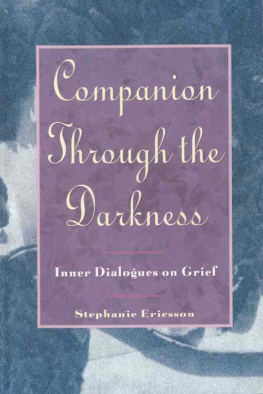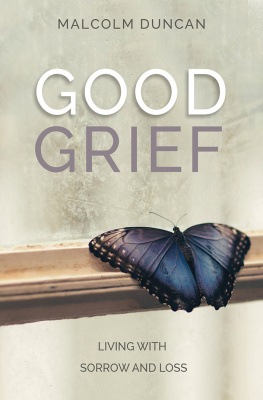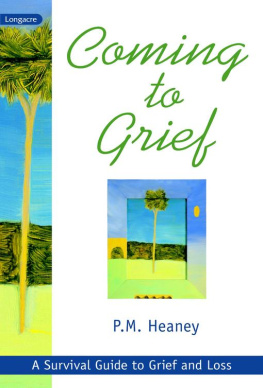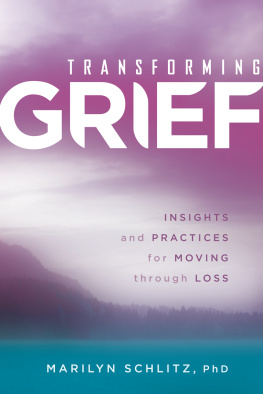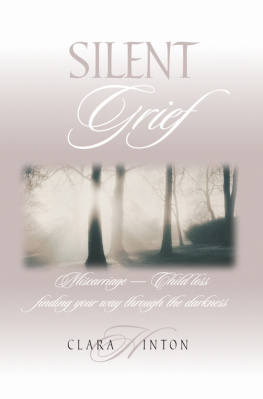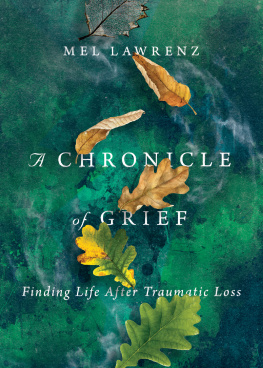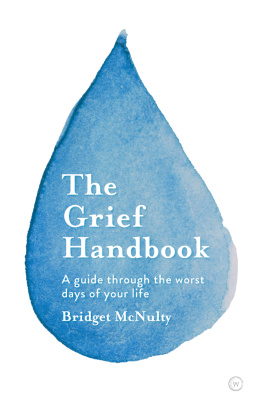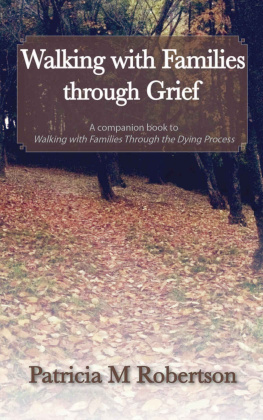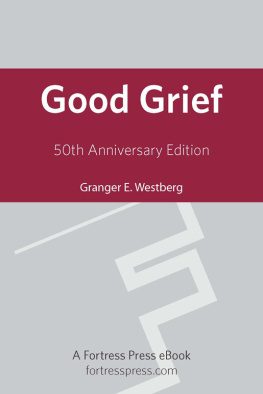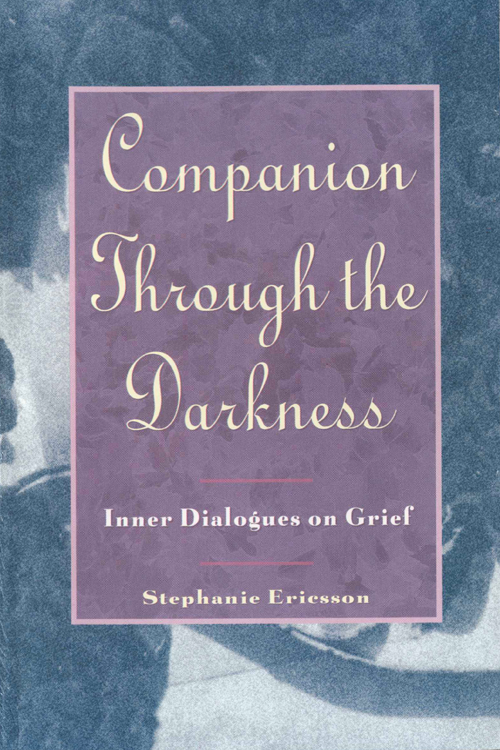ABANDONMENT :
The sudden state I am forced into.
I no longer belong to you.
I no longer belong to anyone.
W ho expects life to change suddenly? Little pocket calendars map out everyday life. Pick up the kids. Drop off the proposal. Finish the laundry tonight. Send Mother a birthday card. Lifelisted on pagespredictable, orderly, preplanned. The priorities of daily existence are made according to our needs, and the needs of those we care about or to whom we have obligations.
Then one day, a bomb is dropped. Yesterday, there was a housewith walls, a roof, and the smells of life steaming up the windows. Today, only the rubble of disaster. Shards of broken confidence and the dust of dreams litter a cracked foundation. The calendars are forgotten. Priorities reorder themselves with surviving first on the list. What was eminently important yesterday is indisputably trivial today.
Like the victims of war and natural disasters, the sudden loss of someone so important plunges us into a realm where we have no control. The lives we planned will never be as we planned.
The rubble has to be swept up. But it looms like a mountain. How does one move a mountain? How do you piece together something that may someday resemble a life again? Not without many hours, days, months, even years. Not without blisters, cuts, bruises, and tears. And the only place to begin is in the shadow of the mountain.
When you died, I was thirty-five, and two and a half months pregnant. The shock was beyond anything I could put into words, a big tumble into a blackness of sounds and cold hands clawing at me. Minutes were slow motion, and all that wasnt imperative to my survival was edited out of my memory. My psyche had been slammed against a brick wall. Every time I thought about you, about your dying alone on LaSalle Avenue in midday traffic, I felt the slam again and again. My breath was sucked out through another opening deep inside me, sucked out to oblivion.
Your plane was leaving in two hours. On the other end, I was driving up to meet you at the airport. So what happened? I reconstruct it over and over.
You took out your key and put it into the door of the car. You turned it and the door unlocked. You pulled the handle and then there was a pain. And youwhat did you do? Grab your chest? Or your arm? Did you fold under the weight of it? Did you fall, hitting your head on the asphalt as cars whizzed by? When did someone see you?
What happened then? Did you see death? Did you say anything? Did you want to stay with me? Did you forget about me? Was I simply a short chapter in your life? Did you see your dead brother standing at the entrance to the white tunnel with his hands out? Did you fight death? Did you welcome it? Did you want to go? Did you think about any of us who loved you in your life? Did you know that though we were sometimes cruel, we loved you? What did you know at that moment? Did you know God? Did you even notice youd died? Did you feel the people pounding on your chest? Were your eyes open or closed? Did you feel them pick you up and put you on the stretcher? The doctors tried for three hours to bring you back. You refused. Oh, you were as incorrigible in death as you had been in life.
And I? I was eating a salad in a restaurant at the hotel, after driving eight hours, pregnant and ravenous. I remember when I felt the pain through my heart. I had wanted my salad as soon as I sat down. My hunger made me watch the clock incessantly for the waiter, who had disappeared, and who didnt realize that I was about to faint. At 8:55 the salad came, and I commenced to eat, slowing myself, knowing that the hunger inside would backfire if I ate too fast. At 8:58, I felt the burn, like a hot wind blasting me open. I sat back. I tried to breathe. I couldnt. The waiter came over to see if everything was okay. I couldnt talk. I saw your face in my mind, clear and real before me. Despite the pain, I smiled, knowing I would see you coming through the airport gate tomorrow morning. Oh, two months, I thought, was too long to be away from you.
You were dead. You had exited the world, 2:58 P.M . Minneapolis time. In England, it was 8:58 P.M. when the vinegar curdled in my stomach. The same exact momentthousands of miles away.
When you died, I was thirty-five, and two and a half months pregnant. I was alone, eating a salad in a hotel in England, going to the airport the next morning to find that my husband never got on the plane. At least, not the plane to England.
SHOCK :
A paralysis that starts in my soul
and quickly attacks my body.
I n Alcoholics Anonymous, there is a tradition of remembering as clearly as possible the last days or months of drunkenness. Not for maudlin reasons or self-flagellation, but because it is the lucid moment of hitting these bottoms that propels recovery forward. To forget is to risk the delusion that drinking again is a possibility.
So it is with death. I will try very hard to remember what the moment was like when I heard he was dead. I will try very hard to remember what the feelings were when the months afterward crawled by. These, like the last days before sobriety, are the downpayment for a new life, and new eyes. Ironically, a love of life springs from the memories of these days. Partially because I am no longer there. But mostly because I survived. Death is my friend now, my constant companion who makes me look for the precious every moment I am conscious.
And inside, I hear the words, Be still. This wont kill you.
First there was a rip. Like the sound of my insides being sliced by a stiletto. Time slowed to a series of still photographs. Went backward, jumped forward, into undeveloped black. Memories flashed in my head. Stupid memories. Buying a carton of o.j. with him on a Sunday morning five years ago. The look on his face when he had to do the dishes, or else! Nothing meaningful. But all meaningful.
Like a windshield hit by a rock, I shattered. Like the windshield, I was in one piece, but useless. The pieces were separate but intact, like they needed each other to exist.
That was all in the split second when I heard He died. Then there was the stun. No words, no gestures. Except I found myself under the desk that held the phone that said the words.
People said stupid things. Wanna cup of coffee? I looked at them, aliens all of them.
GRIEF:
The act of accepting forced change;
a constant state of my existence,
in varying degrees from white hot to disgruntlement;
a sign that I am truly alive.
W hat is there to say about grief?
Grief is a tidal wave that overtakes you, smashes down upon you with unimaginable force, sweeps you up into its darkness, where you tumble and crash against unidentifiable surfaces, only to be thrown out on an unknown beach, bruised, reshaped.
Grief means not being able to read more than two sentences at a time. It is walking into rooms with intention that suddenly vanishes.
Grief is three-oclock-in-the-morning sweats that wont stop. It is dreadful Sundays, and Mondays that are no better. It makes you look for a face in a crowd, knowing full well the face we want cannot be found in that crowd.

